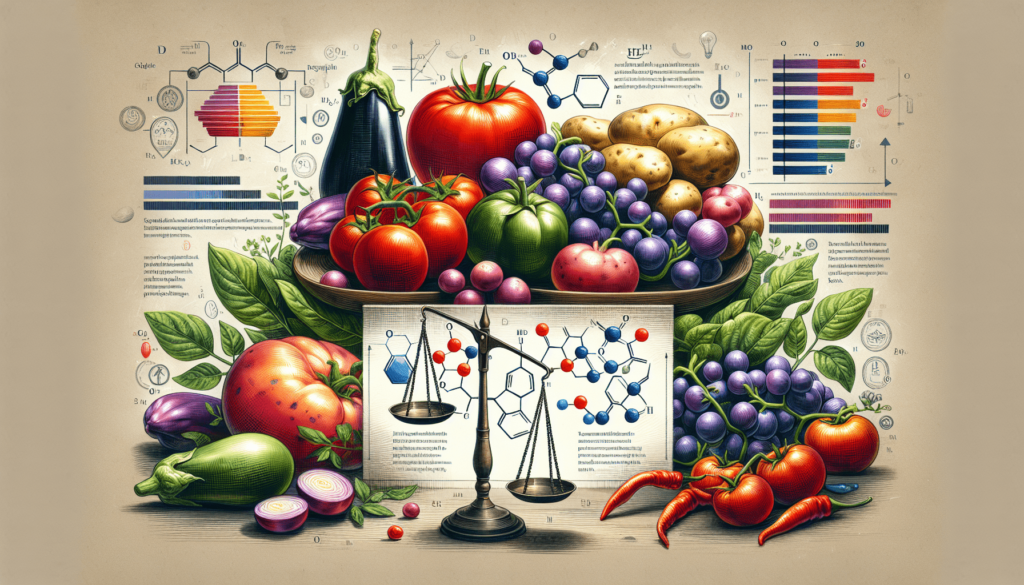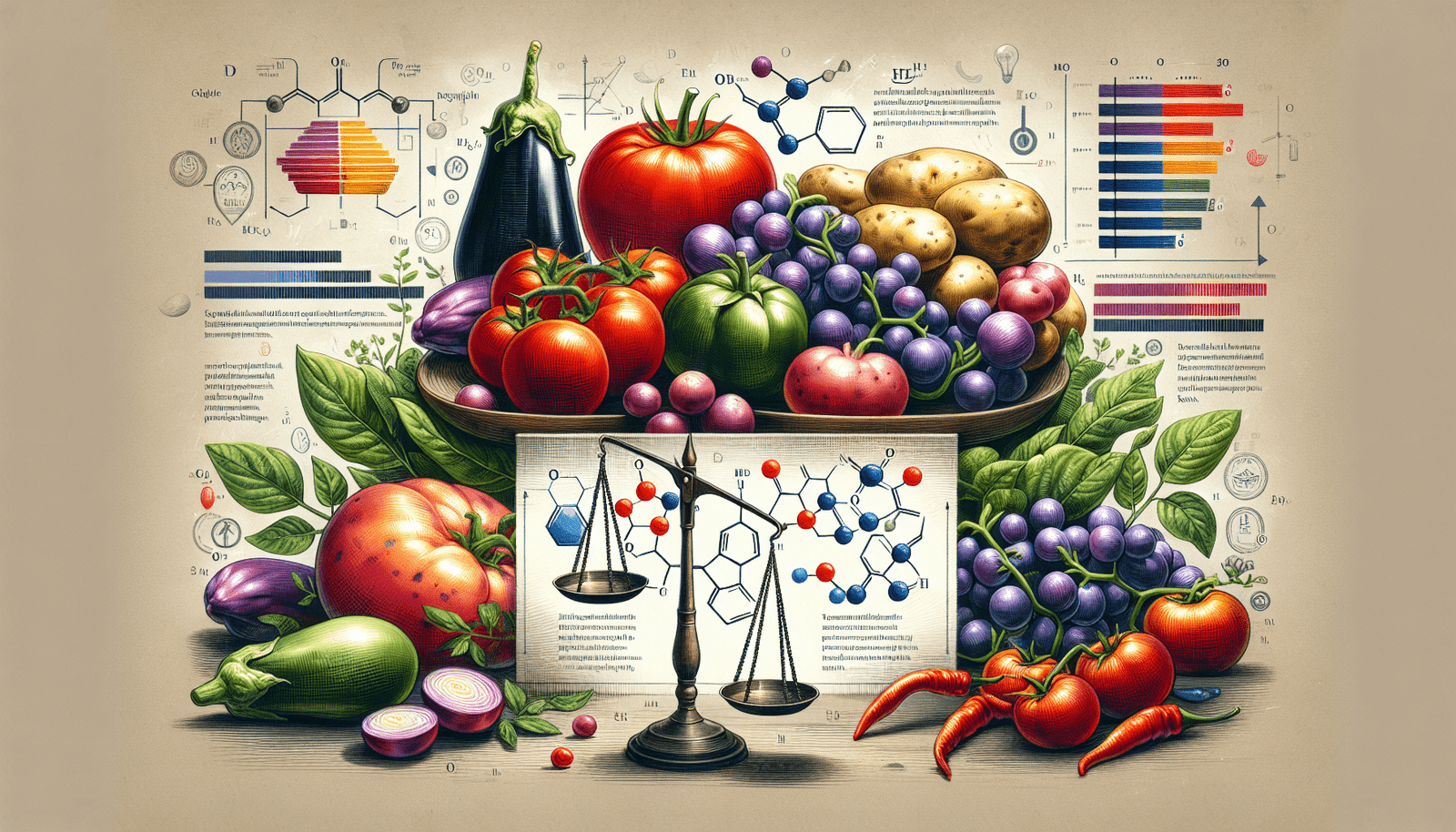If you’ve ever heard someone talk about nightshade vegetables, you might be wondering whether you should avoid them as well. These vegetables include popular options like tomatoes, potatoes, and bell peppers, but they also have a controversial reputation. While some claim that nightshades can lead to inflammation and digestive issues, others argue that they offer numerous health benefits. In this article, we’ll explore the facts surrounding nightshade vegetables, highlighting the potential benefits and concerns associated with consuming them. By the end, you’ll have the information you need to make an informed decision about whether to include these vibrant veggies in your diet.

What are Nightshade Vegetables?
Nightshade vegetables are a category of vegetables that belong to the Solanaceae family. They are called nightshades because many of them grow and are harvested during the night. These vegetables have been a staple in various cuisines around the world for centuries. They are known for their vibrant colors, distinct flavors, and versatility in cooking.
Definition
Nightshade vegetables include popular varieties such as tomatoes, potatoes, peppers (bell peppers, chili peppers), and eggplants. Other lesser-known nightshade vegetables include goji berries, tomatillos, and ground cherries. These vegetables contain a specific group of compounds called alkaloids, which give them their characteristic taste and nutritional properties.
Common Examples
Some common examples of nightshade vegetables are:
- Tomatoes: Whether enjoyed fresh in salads or cooked into a rich marinara sauce, tomatoes are a staple in many dishes.
- Potatoes: From creamy mashed potatoes to crispy french fries, potatoes are a versatile vegetable that can be prepared in various ways.
- Bell Peppers: With their crunchy texture and vibrant colors, bell peppers are fantastic additions to stir-fries, salads, and stuffed pepper recipes.
- Eggplant: This versatile vegetable is often the star of dishes like eggplant parmesan or baba ganoush.
- Chili Peppers: From mild jalapenos to fiery habaneros, chili peppers add heat and flavor to numerous recipes, such as salsas or spicy curries.
The Controversy Surrounding Nightshade Vegetables
Despite their popularity and nutritional value, nightshade vegetables have gained some controversial reputation due to certain health claims and misconceptions surrounding them. Let’s take a closer look at the key points of controversy.
Health Claims
Some health claims suggest that nightshade vegetables can cause or exacerbate certain health conditions, such as arthritis, digestive disorders, or autoimmune diseases. However, it is essential to understand that these claims are often based on anecdotal evidence or individual experiences, rather than scientific research.
Misconceptions
There are several misconceptions related to nightshade vegetables. One prevailing belief is that these vegetables are inherently harmful and should be avoided entirely. However, it is crucial to note that while nightshade vegetables may cause issues for some individuals, they can be consumed safely and enjoyed as part of a balanced diet for the majority of people.
Potential Benefits of Nightshade Vegetables
Despite the controversy, nightshade vegetables offer various potential benefits that should not be overlooked. Here are some notable advantages of incorporating them into your diet:
Nutritional Value
Nightshade vegetables are packed with essential nutrients. They are a good source of vitamins A, C, and K, as well as minerals like potassium and magnesium. These nutrients support healthy immune function, promote bone health, and contribute to overall well-being.
Antioxidant Properties
Many nightshade vegetables contain antioxidants, which are compounds that help protect the body’s cells from damage caused by harmful free radicals. Tomatoes, for example, are rich in lycopene, a potent antioxidant that has been linked to a reduced risk of certain cancers and heart disease.
Anti-Inflammatory Effects
Some nightshade vegetables, such as peppers and eggplants, contain compounds that have anti-inflammatory properties. These compounds, like capsaicin in chili peppers, may help reduce inflammation in the body, which is beneficial for individuals with conditions like arthritis.
Nightshade Vegetables and Digestive Health
While nightshade vegetables offer numerous health benefits, it is important to consider potential sensitivities or irritations they may cause, particularly for individuals with certain digestive health concerns.
Digestive System Sensitivities
Nightshade vegetables contain compounds like solanine and glycoalkaloids, which can be irritating to the digestive system for some individuals. People with conditions like irritable bowel syndrome (IBS) or inflammatory bowel disease (IBD) may experience symptoms like bloating, gas, or abdominal discomfort when consuming these vegetables.
Potential Irritants
In some cases, the skin or seeds of nightshade vegetables can be harder to digest. Peppers, for instance, contain a substance called capsaicin, which gives them their heat. This compound can sometimes irritate the lining of the digestive tract if consumed in excessive amounts or for individuals with existing sensitivities.

Nightshade Vegetables and Joint Health
There is a long-standing belief that nightshade vegetables may worsen symptoms of arthritis. While the connection between nightshades and joint health is a topic of debate, it is essential to delve into the available scientific evidence.
Arthritis Connection
Some individuals with arthritis or other joint-related conditions claim that eliminating nightshade vegetables from their diet has alleviated their symptoms, such as joint pain and inflammation. However, this connection is largely based on anecdotal reports, and scientific studies have provided mixed results.
Scientific Evidence
While some limited studies have suggested a potential link between nightshade vegetables and arthritis symptoms, the research findings are not conclusive. More comprehensive studies are needed to determine whether nightshade vegetables genuinely worsen arthritis or if other factors contribute to individuals’ experiences.
Nightshade Vegetables and Autoimmune Diseases
Another area of concern regarding nightshade vegetables revolves around their potential impact on autoimmune diseases. Autoimmune diseases occur when the immune system mistakenly attacks the body’s healthy tissues. Let’s explore the potential relationship between nightshades and autoimmune diseases.
Impact on Autoimmunity
Some proponents of certain dietary approaches for managing autoimmune diseases recommend avoiding nightshade vegetables. The belief is that certain compounds in these vegetables may trigger or worsen autoimmune symptoms. However, scientific evidence supporting this claim is limited, and individual responses may vary.
Individual Reactions
It is important to remember that everyone’s body and immune system are unique. What may trigger symptoms for one person may not have the same effect on another. Some individuals with autoimmune diseases may find that avoiding nightshade vegetables temporarily improves their symptoms, while others may not notice any significant changes.
Tips for Incorporating Nightshade Vegetables
If you enjoy nightshade vegetables and want to include them in your diet, there are various ways to do so while minimizing potential issues. Here are some tips for incorporating nightshade vegetables into your meals:
Cooking Methods
Certain cooking methods can help reduce the levels of potentially irritating compounds in nightshade vegetables. For example, roasting or steaming potatoes can break down the alkaloids and make them easier to digest. Peeling tomatoes before cooking or consuming them may also help mitigate any sensitivities.
Variety of Usage
Instead of relying heavily on one nightshade vegetable, aim to incorporate a variety of them into your meals. This way, you can enjoy the flavors and nutrients they provide without overwhelming your system with large quantities of a particular vegetable. Mixing up your choices can help diversify your diet and minimize any potential drawbacks.
Listening to Your Body
When it comes to nightshade vegetables or any other food group, it is crucial to pay attention to your body’s signals and listen to how it reacts to different foods. Here are some ways to identify sensitivities and understand your individual tolerance:
Identifying Sensitivities
Keep a food journal to track your symptoms and any patterns that may emerge. If you notice consistent discomfort or digestive issues after consuming nightshade vegetables, it may be worth exploring whether these vegetables are causing the problem.
Individual Tolerance
Every individual’s tolerance to different foods varies. Some people can enjoy nightshade vegetables without any issues, while others may experience sensitivities. Experiment with small portions and observe how your body responds. If you find that certain nightshade vegetables cause discomfort, consider reducing or eliminating them from your diet.
Consulting with a Professional
If you have concerns about incorporating nightshade vegetables into your diet or want personalized guidance, consulting with a healthcare professional can provide valuable insight. Here are two professionals you may consider reaching out to:
Dietitian or Nutritionist
A registered dietitian or nutritionist can assess your specific dietary needs, provide guidance on incorporating nightshade vegetables, and help you design a well-balanced diet that meets your nutritional requirements.
Functional Medicine Practitioner
A functional medicine practitioner takes a holistic approach to health and considers individual factors such as genetics, lifestyle, and environment. They can guide you in identifying any potential food sensitivities or underlying issues that may influence your response to nightshade vegetables.
Conclusion
Nightshade vegetables offer a wide range of flavors, nutrients, and health benefits. While there are controversies and potential concerns surrounding them, they can be safely enjoyed by the majority of individuals. By paying attention to your body, listening to its signals, and adopting a balanced approach, you can determine if nightshade vegetables are a good fit for your unique dietary needs. Remember, dietary choices are personal, and it’s essential to make decisions that best support your overall well-being.

